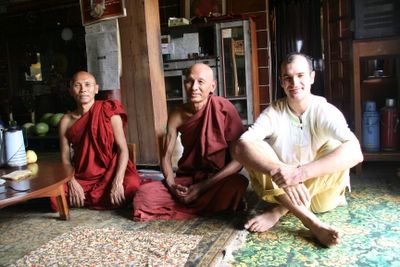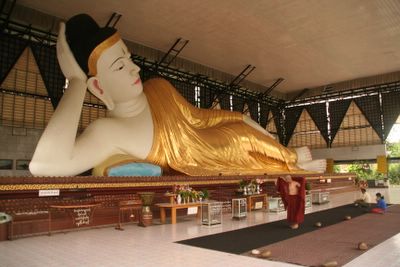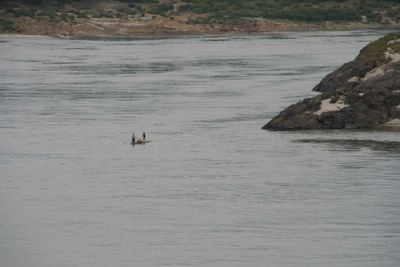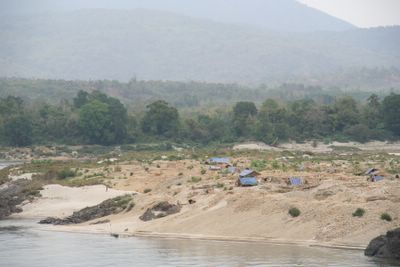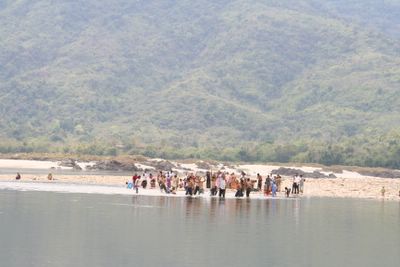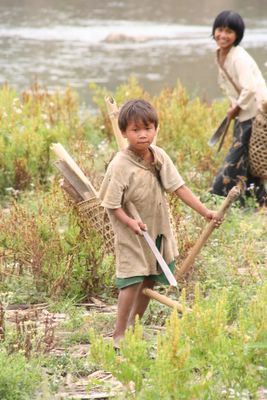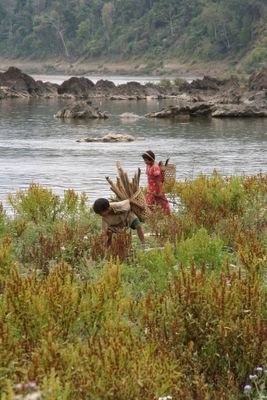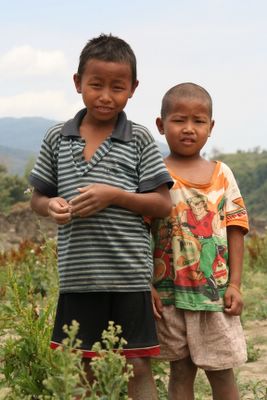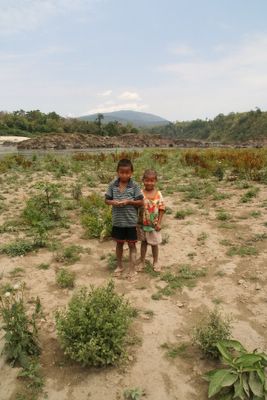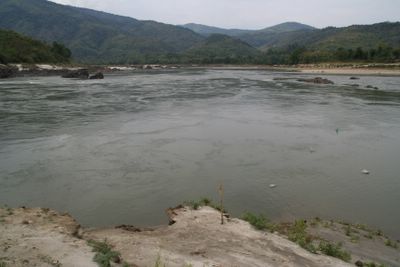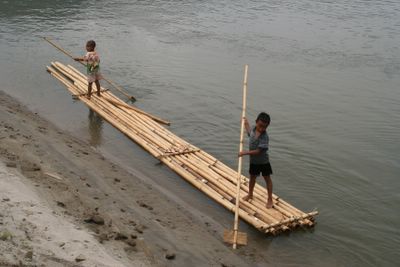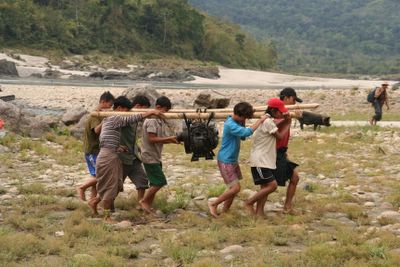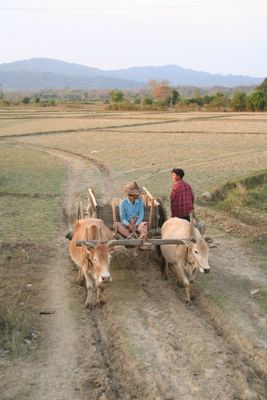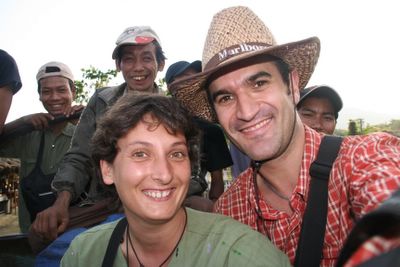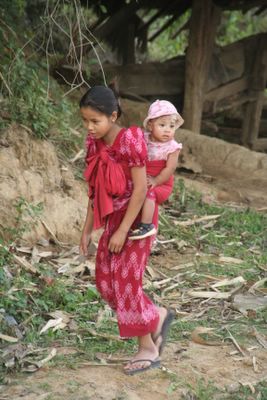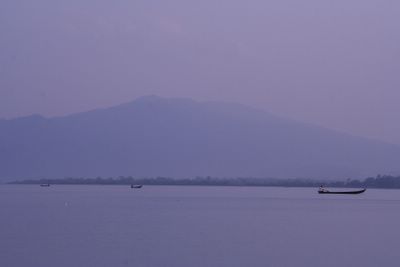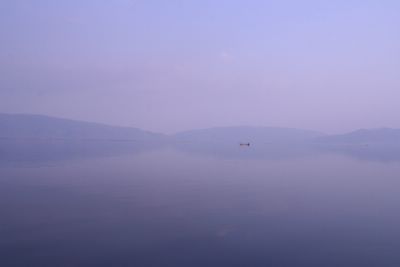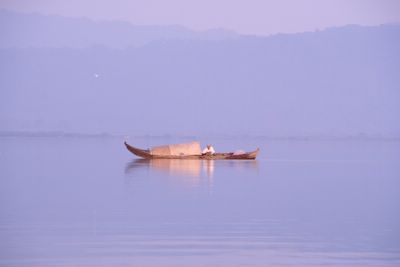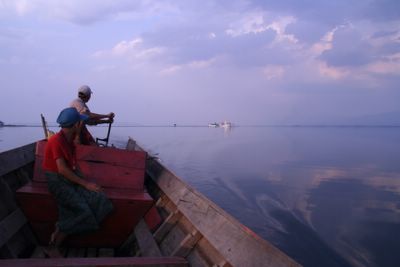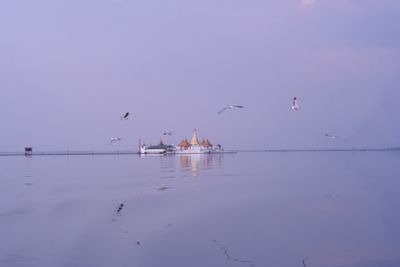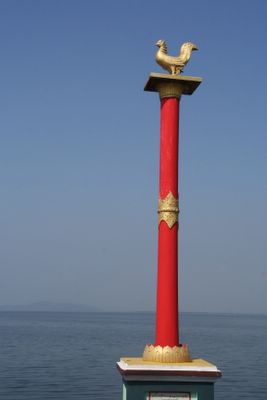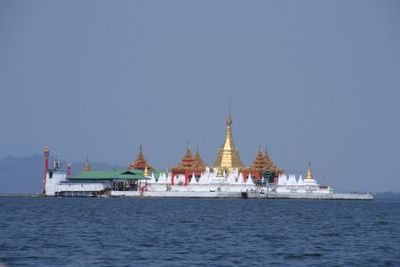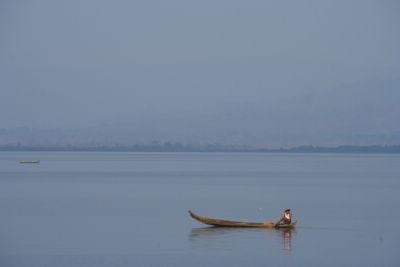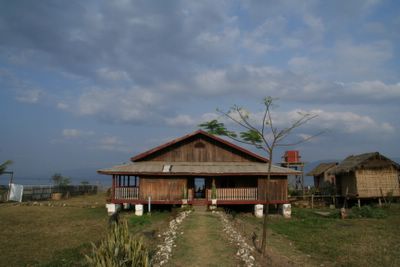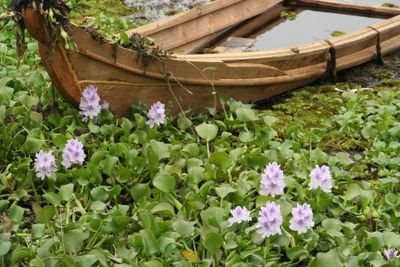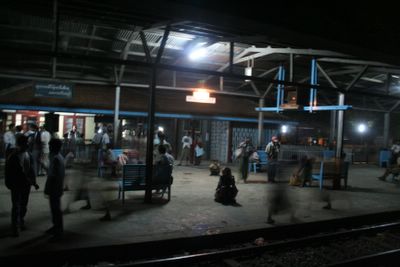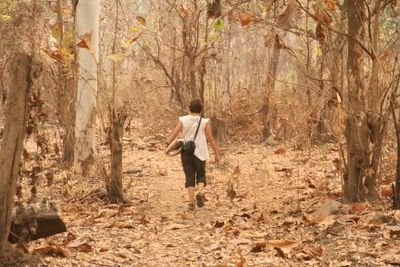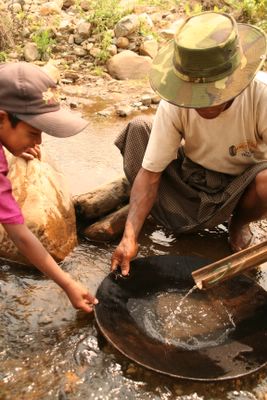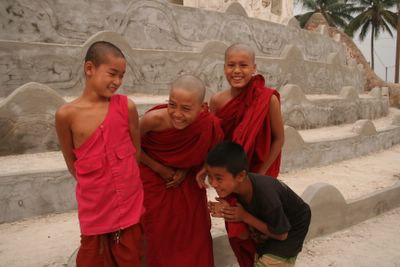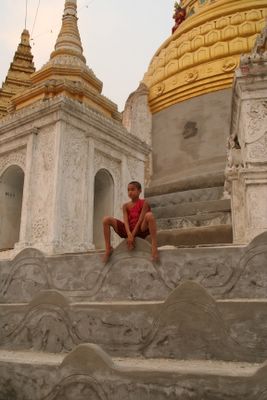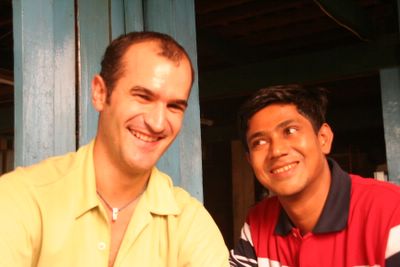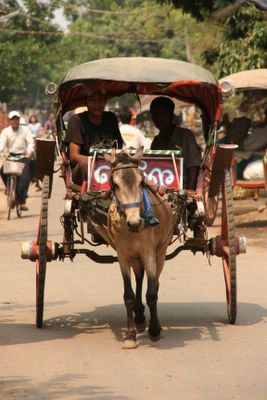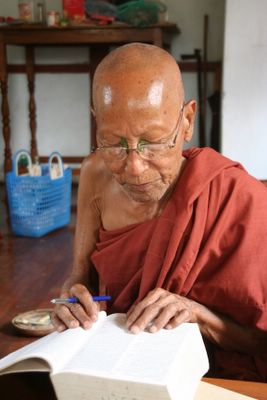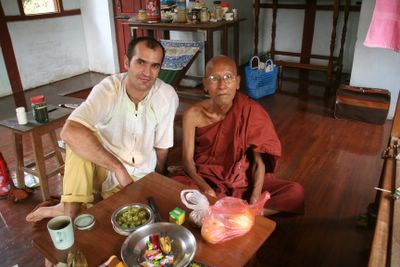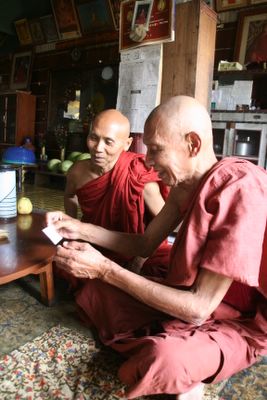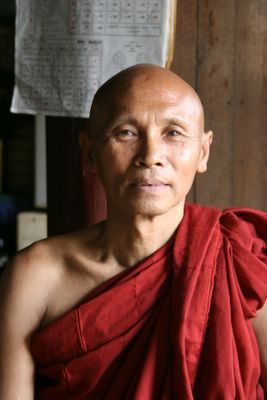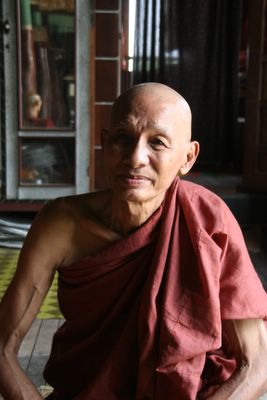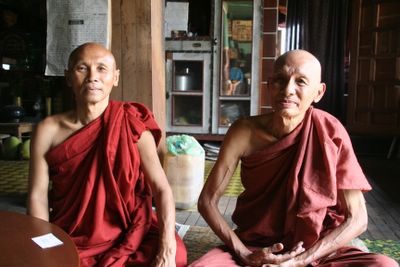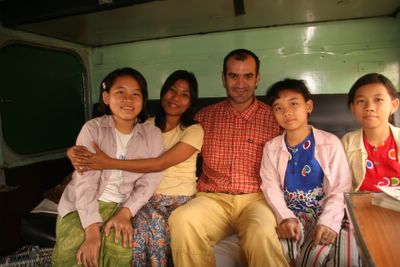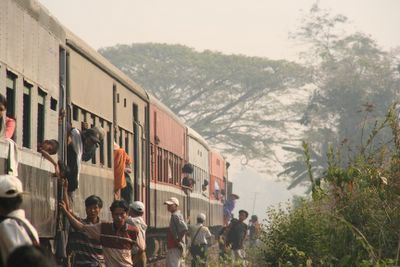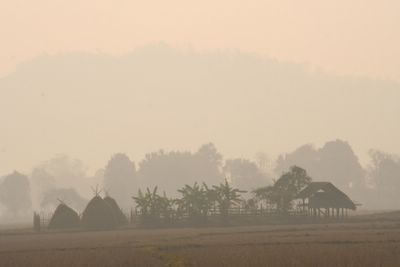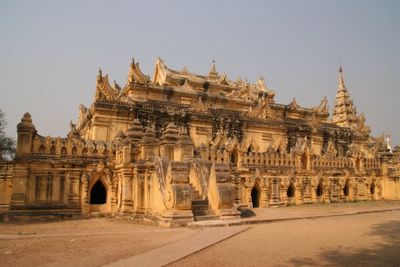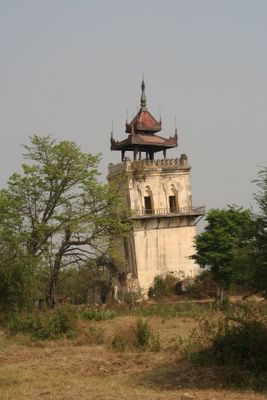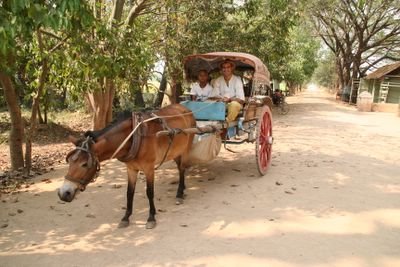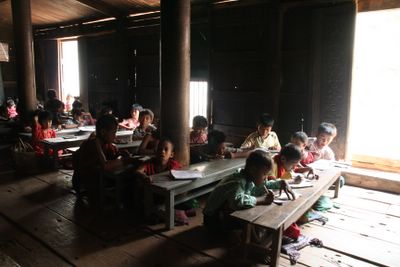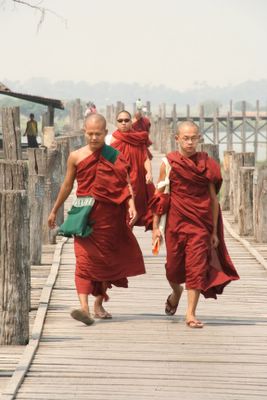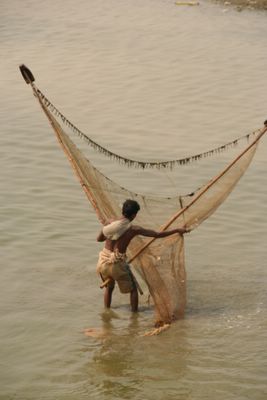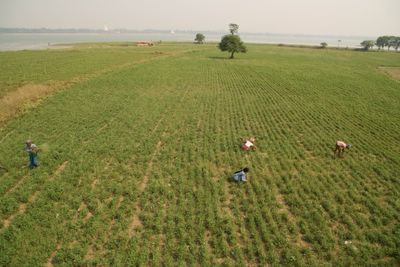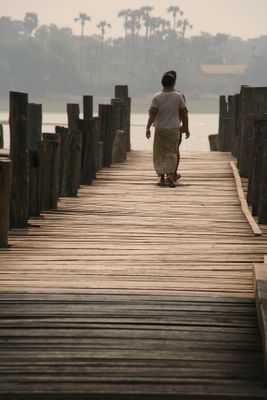Mi pais de los suenhos
Queridos amigos,
No se ni como empezar a comunicaros mi viaje en Birmania. Tengo la sensacion de que con palabras no voy a poder transmitiros la gran cantidad de emociones y sentimientos que me vienen al corazon cuando miro para atras. Si cierro los ojos y pienso en Birmania, veo sobre todo miradas llenas de ternura. Algunas de estas miradas son de amigos que he hecho durante estos dos meses de viaje por el pais. Otras de encuentros breves, pero marcantes.
Una mirada que me ha dejado una gran huella es la de el monje principal de Katha, al Norte del pais. Un dia me vio pasear por el monasterio, y con gestos me dio a entender que me invitaba a comer al dia siguiente. Asi que nos encontramos al dia siguiente. Creo que nunca he visto tanta paz y bienestar en los ojos de alguien. Mirandole a los ojos mientras conversabamos, ayudados por otro monje que hacia las veces de interprete, me encandilaba, como en un hechizo. Sus ojos me mostraron algo mas que al hombre que hay tras ellos. Como si en esa mirada hubiese algo trascendental, atemporal y permamente.
Las personas en Birmania han conservado, conservan, una bondad y una inocencia que conmueve. Existe una curiosidad sana en acercarse al otro, al forastero. Desde el primer momento, a menudo, senti que sin conocerme me trataban como a un viejo amigo. Nunca pense que en Asia, en una cultura tan lejana a la mia, podria sentirme tan en casa como en Birmania.
Cuando dejo atras un pais y me adentro en otro, la curiosidad de conocer una nueva realidad hace que mire hacia delante con regocijo, como cuando estamos a punto de comernos nuestro postre favorito. El dia que deje atras Birmania fue un dia triste, melancolico. Una tristeza pegajosa, en la que gustosamente me sumergi. Otras veces me cuesta mas aceptar mis tristezas, pero ese dia, y algun otro despues, me deje abrazar por ella. Y esta tristeza tal vez sea una prueba de que Birmania me ha marcado, ha dejado una huella grande en mi. Siento gratitud, y me siento afortunado. Por cada encuentro, por cada amigo y amiga que alli conoci, autoctono o extranjero. Birmania es un gran pais, y un pais grande tambien. Pero el corazon de su gente es aun mayor. Y dejarse abrazar por tantos corazones es como vivir un buen suenho del que despertamos felices.
